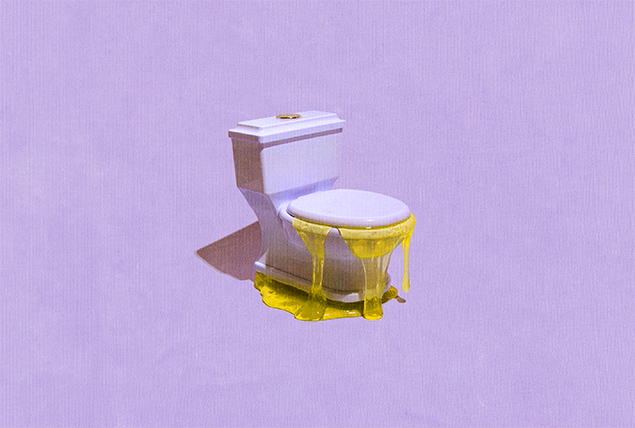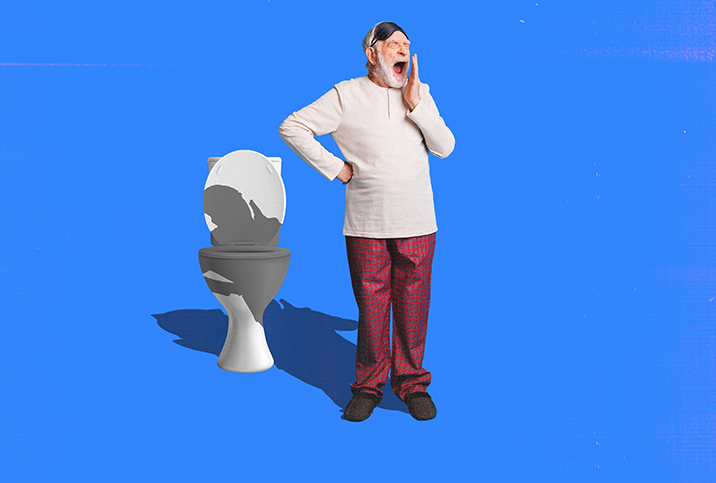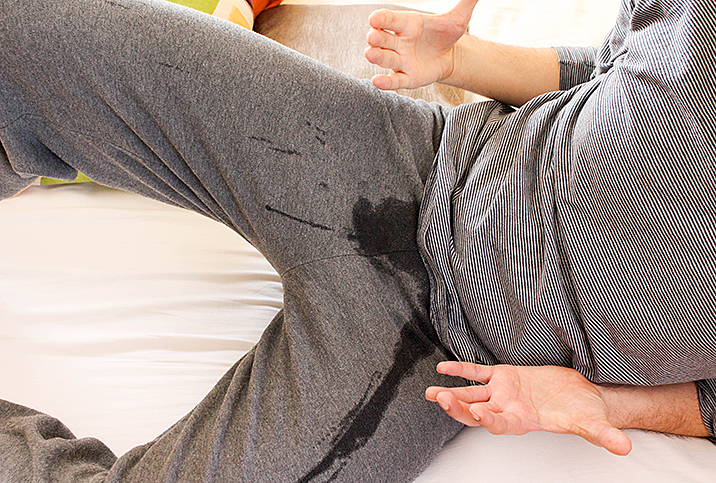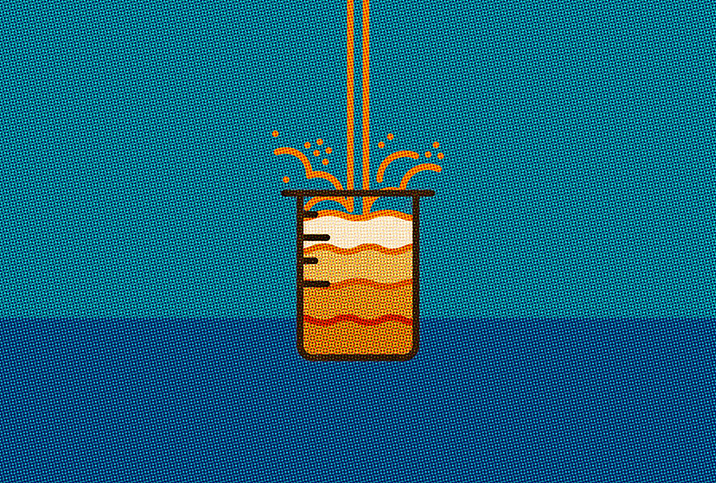Why Can't I Sleep Through the Night Without Peeing?

Are you among the majority of older adults who can't sleep through the night without peeing? How often do you wake up in the middle of the night with an urge to urinate? Is it happening so frequently that it's preventing you from getting a restful night's sleep? Consult with your doctor, who may talk to you about nocturia, a common urological condition.
Nocturia can affect anyone, regardless of gender identity, and many people experience relief with simple lifestyle changes, according to James Elist, M.D., a urologist in Beverly Hills, California. Sometimes, though, nocturia can point to other potential problems.
"Nocturia is a medical condition in which an individual wakes up at night one or more times to urinate, although some people may wake up more frequently," he said. "It can be a symptom of an underlying medical condition or simply a result of certain lifestyle factors, like drinking too many fluids before bedtime or consuming diuretic substances."
Signs and symptoms of nocturia
Elist said in addition to an urgent need to wake up one or more times during the night to urinate, nocturia can manifest in several other ways, including:
- An increased need to urinate during the day
- Difficulty starting urination
- A weak urine flow
- Pain or discomfort during urination
- Blood in the urine
- Thirst or dehydration
- Fatigue or daytime sleepiness
- Mood changes or irritability due to lack of sleep
- Incontinence or leakage of urine
Who gets nocturia?
"It's estimated that up to 50 percent of adults over the age of 50 experience nocturia, and the prevalence increases with age," said Elist, who treats many patients for the condition. "This is because, as we get older, our body produces less antidiuretic hormone (ADH), which helps the body retain fluid. Additionally, age-related changes to the bladder and prostate can also contribute to the development of nocturia."
Some research suggests both race and gender play a role in someone's likelihood of developing nocturia, according to David Shusterman, M.D., the chief physician and founder of New York Urology in New York City.
"African American and Hispanic men and women over 40 years old are more prone to nocturia," Shusterman said. "Women after having multiple pregnancies can also be prone to nocturia."
Elist said many pregnant women experience nocturia due to complications of their pregnancy.
"During pregnancy, a woman's body produces more blood and other fluids to support the growing fetus," Elist said. "This increased volume can put pressure on the bladder, leading to more frequent urination, including at night. Additionally, as the uterus grows during pregnancy, it can put pressure on the bladder, further increasing the likelihood of nocturia."
Hormonal changes during pregnancy also contribute to the condition, he added. Progesterone helps the muscles in the uterus relax. But it can also cause the bladder muscles to relax, which makes it more difficult to hold urine.
Obesity is another common risk factor associated with nocturia, according to Elist, because excess body weight can exert pressure on the bladder and make it more difficult to hold urine.
"Obesity can also contribute to sleep apnea, a condition that can further disrupt sleep and contribute to the development of nocturia," he added.
What causes nocturia?
A host of factors may contribute to someone developing nocturia. These can include common activities and behaviors many of us engage in, medications, and medical conditions. Some of the most common, according to Elist, are the following:
- Drinking fluids before bedtime
- Consuming alcohol or caffeine in the few hours before bedtime
- Smoking, which can irritate the bladder
- Leading a sedentary lifestyle, which can lead to fluid retention
- Taking medications such as diuretics and blood pressure medications, which can increase urine production
- Having medical conditions such as diabetes, urinary tract infections, kidney disease, prostate problems and bladder problems
- Aging
- Changing hormones, like during pregnancy and menopause
- Having sleep apnea
The impact of nocturia
One of the most challenging aspects of living with nocturia is that it disrupts your sleep schedule, and a lack of quality sleep can affect nearly every facet of your health.
"Nocturia affects a person's deep sleep cycle, which causes acute fatigue," Shusterman said.
The lack of sleep caused by nocturia can lead to the following health issues:
- Increased stress levels
- Memory and concentration problems
- A weakened immune system
- An increased risk of heart disease and diabetes
- Mood swings
- Depression
Nocturia is often reported to be particularly bothersome by patients due to the strain it can put on relationships and the anxiety that accompanies the condition, which may be a sign that larger health issues are at play, Elist said.
"Nocturia can cause anxiety and embarrassment, particularly if a person needs to get up multiple times during the night to use the bathroom," he said. "This can be particularly problematic for people who share a bed or a room with a partner or family member. [Since] nocturia can be a symptom of medical conditions such as diabetes, kidney disease or a prostate problem, the worry or concern about the underlying cause of nocturia can add to the stress and anxiety associated with the condition."
If you're experiencing symptoms of nocturia, make an appointment with your primary care provider, who can perform a physical exam and refer you to a urologist or nephrologist for more tests and treatment.
Shusterman said talking to a doctor about the symptoms you're experiencing—and their impact—is the first step toward regaining quality sleep and boosting your overall health.
"In some cases, patients have become accustomed to the symptoms for so long that they no longer consider them an issue and therefore don't feel a need to discuss it," Shusterman said. "[Medical professionals] ask questions to further understand their issues with nocturia and offer support and encouragement. We try to create a safe and comfortable environment for our patients to talk openly about the subject."


















